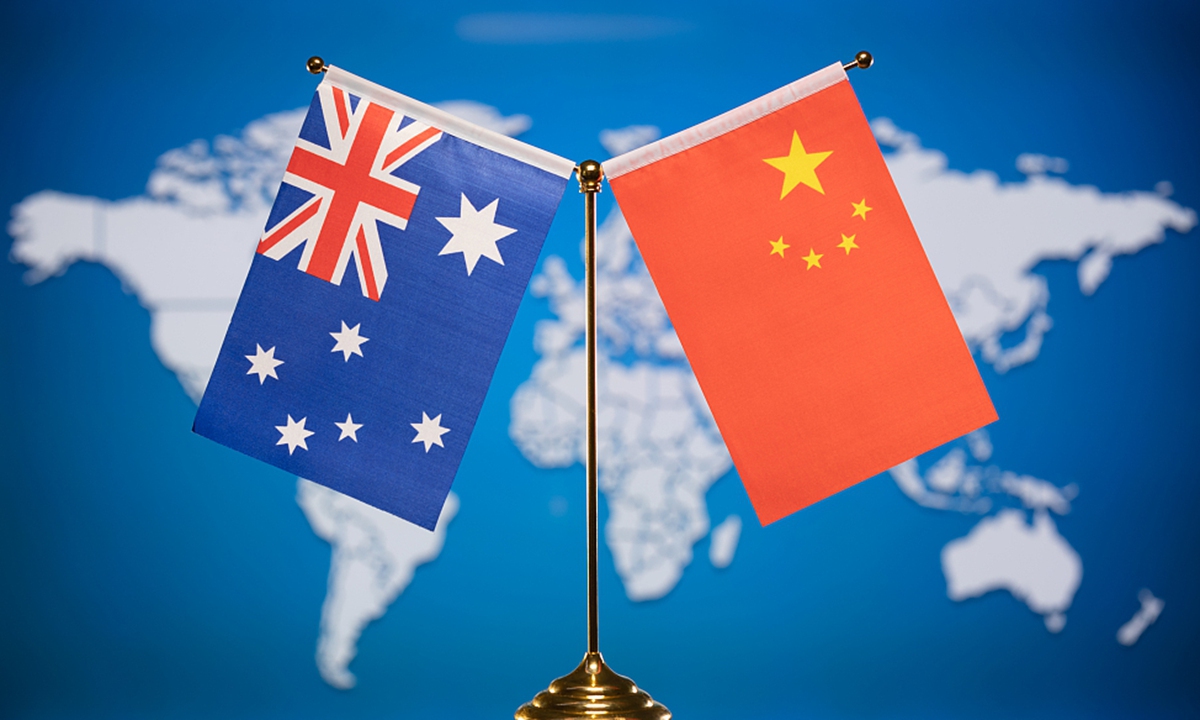
Photo: VCG
Will China-Australia relations officially break the ice?
mk Are China-Australia relations still testing the waters? Can China-Australia relations stabilize and continue to improve? Before the annual meeting between Chinese Premier and Australian Prime Minister, public opinion on the current state of China-Australia relations was still divided. However, with China unilaterally granting visa-free entry to Australians, the initiation of cooperation on giant panda conservation, and a series of pragmatic achievements, including bilateral cooperation documents in strategic economic dialogue, further promotion of free trade agreement implementation, climate change response, education, and culture, dominating media headlines, the relationship between the two countries has not only achieved the goals of rebuilding dialogue and stabilizing, as Australian Prime Minister Anthony Albanese mentioned, but also, as Chinese Premier Li Qiang noted, has been "back on track after a period of twists and turns."
The state of China-Australia relations, particularly the economic and trade relationship as a stabilizer and booster of bilateral ties, has been clearly reflected. According to Australian data, last year, Australia's total trade with China reached a record A$219 billion (approximately 1.047 trillion yuan), far exceeding the A$168 billion in 2019. For instance, in April alone this year, Australia exported high-quality wine worth about A$86 million (approximately 410 million yuan) to China, with industry players noting that they've been very busy as sales orders have been constant. Moreover, since the beginning of this year, Australia has become the fifth largest source country for inbound tourism to China, with inbound tourism orders increasing by 155 percent year-on-year. These indicators show that China-Australia economic relations have not only stabilized and recovered but have also achieved new growth.
The "spring blossom" in China-Australia relations is not a coincidence. A survey released by the Global Times Institute on Monday shows that in 2024, the average favorable rating of Chinese people towards Australia increased to 69.2 points, higher than the scores of the past three years. A recent poll from Australian think tank Australia-China Relations Institute indicates that 61 percent of respondents believe Australia should continue to try to build strong connections and ties, and have a strong relationship with China, and 54 percent said that without close economic engagement with China, Australia would not be as prosperous as it currently is. Clearly, a more stable and friendly China-Australia relationship is the common aspiration and expectation of the people of both countries.
Whether in terms of economic and trade relations or people-to-people exchanges, the steady warming of China-Australia relations since 2022 has been due to the appropriate path taken to restore ties. It is well known that the past two years have not been entirely smooth for China and Australia, but both sides have always provided opportunities to manage differences through dialogue. Frequent contacts at various levels, smooth diplomatic channels, and a rational public opinion environment have supported the recovery of bilateral relations. The resumption of the annual high-level meetings between the two countries, along with the deepening of a series of cooperation mechanisms on the existing foundation, is expected to provide more assurance for the continuous improvement of bilateral relations.
What is more important is whether the two sides can clearly recognize and adhere to the mutually beneficial and win-win nature of the China-Australia relationship. In the final analysis, any country's foreign policy should ultimately return to serving its own national interests. The economic and trade structures of China and Australia are still highly complementary, and the function of economic and trade relations working as a "ballast" of bilateral ties has not changed. China's market is highly irreplaceable for Australia and there is still a lot of growth potential. Both sides' economic prosperity depends on regional peace and stability. Only if we can get rid of the tendency of third-party interference, pan-politicization and ideologization of economic issues, the basic outlook of the bilateral relationship that seeks mutual benefit and win-win can be restored. This in turn will bring real benefits and gains for the people of the two countries.
There are some countries in the world, similar to Australia, that have neither historical grudges nor real geopolitical conflicts of interest with China, and their economic structures are highly complementary to China's, forming a close, interdependent relationship with China in terms of international trade. They have the same demand for the global economic and trade order as well as regional peace and stability. But under the influence of Cold War mind-set like "de-risking" and "decoupling," they are filled with suspicion and even self-imposed constraints in their economic and trade cooperation with China. Australia during the previous ebb with China has exemplified this trait. This also impacted a lot of normal bilateral cooperation. However, Australia is now back on the relatively correct path after weighing the created geopolitical anxiety and the self-development interests. It should also give other countries a wake-up call.
In the Global Times survey, we noticed that Chinese and Australian respondents reached a surprising consensus in terms of which areas of future bilateral cooperation they are most optimistic about. Respondents from both countries are most optimistic about these five areas: international trade - topping the chart, climate change and environmental protection, tourism, energy, and high-tech industries. This also means that if we can look at each other with the right perspective and rational attitude, the development of China and Australia is definitely an opportunity rather than a challenge for each other, and the relationship between the two countries can develop to a higher level.

